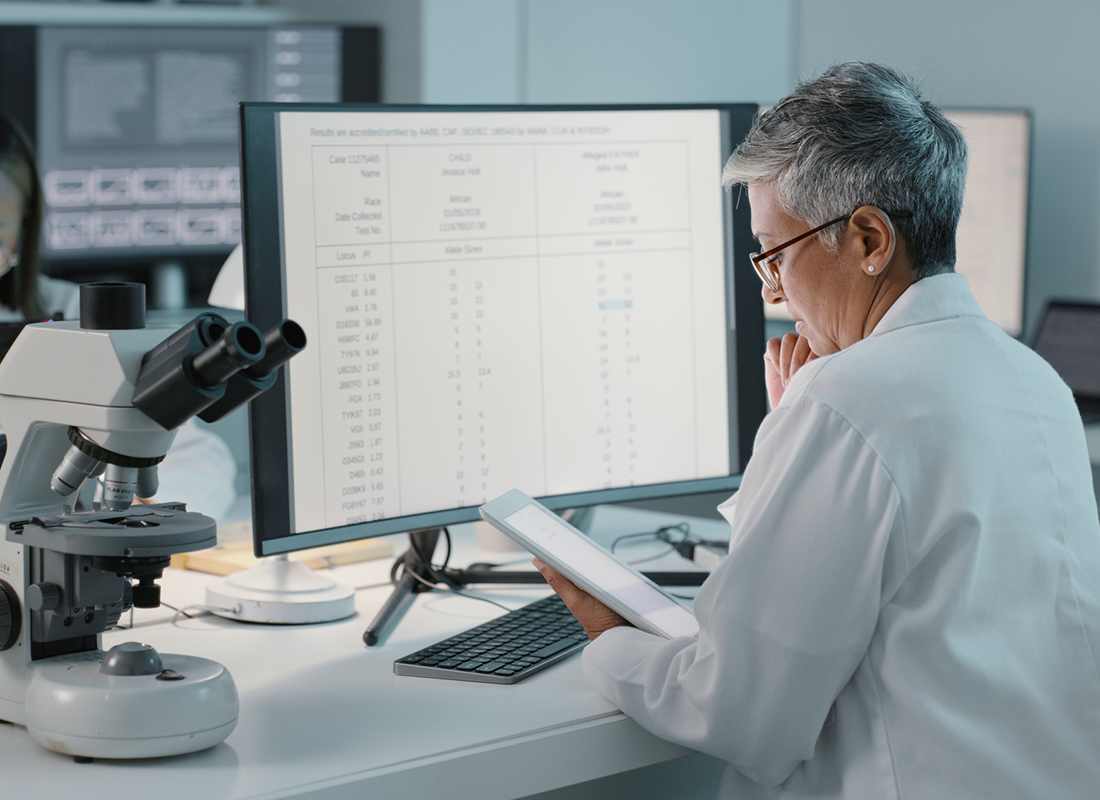Expert Q&A: Enhancing Clinical Labs through Advanced Data Analytics
Lisa-Jean Clifford of Gestalt Diagnostics, discusses key trends, challenges, and solutions in data analytics for clinical labs.

Clinical labs are increasingly taking advantage of data analytics across various applications, from improving operational efficiency to better managing resources and enhancing patient safety. Lisa-Jean Clifford, chief operating officer and chief strategy officer at Gestalt Diagnostics, discusses the latest trends, challenges, and advances in how clinical labs are leveraging data analytics, along with some projections for the future.
Q: For which key applications are clinical labs using data analytics these days?
A: Labs are using data analytics for almost everything—from operational management, planning, and efficiency, to employee hiring, terminations, and retention, as well as supply sourcing and management.
Data analytics is key in identifying changes that need to be made in everything from operational workflows to patient care and safety. The lab generates a multitude of data points, including turnaround times on tests, number of corrected reports, and employee productivity at every stage in a lab’s operations. This information can help management identify areas for improvement, from staffing decisions and retraining employees to identifying technical barriers or bottlenecks.
Resource or inventory management is another area for major improvements and cost savings identification for labs. From ensuring that supplies are ordered just in time, to making sure processes and training are in place to ensure the proper usage, such as first-in, first-out and expiration date management. This can also be useful for labs that provide supplies to their clients. For example, tracking client use of supplies vs tests ordered, or business provided by those clients. You would want to make sure that you aren’t providing supplies for tests/business that you aren’t receiving.
Q: What are some of the latest advances in data analytics that clinical labs can take advantage of?
A: With the increasing adoption of digital and AI solutions, a plethora of information is readily available for current processes and historical data mining alike. Digital workflows are powering meaningful and easily accessible information in areas that labs have not historically considered. Some examples are related to the metadata associated with the patient, case and image information. Integrating AI algorithms into your digital platform provides an expanded set of data and information that the lab can use in their patient treatment applications but also in providing an expanded revenue stream for the organization. This data is meaningful to many others, from academics and researchers to payers and drug and pharmaceutical entities.
Q: Are there any other major trends you’re seeing?
A: Labs that are taking advantage of digital solutions and streamlining access to information through tight integrations and vendor interfaces are at the front of the curve for the ability to enhance their internal processes and add revenue streams for their organizations.
Partnerships among vendors in these areas can help provide the foundation for healthcare entities to access, assess, and package this information in a variety of ways and in a streamlined manner.
Q: What are some of the largest challenges labs face, related to data analytics?
A: Two leading challenges are:
-
- The volume of choices labs have to deploy data analytics solutions
- The knowledge or understanding of which reports to design and run to achieve the results they are looking for.
This also dovetails into a labs’ ability to have foresight around the value and location of the information they have access to. The permutations of the combination of sources and the formulas for interpreting that data are almost limitless.
Q: What would help solve those challenges?
A: Healthcare organizations and laboratories should have a department, if not a person, responsible for pathology informatics. This function should be a central focus of their operational planning and funding, not an afterthought.
Q: What are you excited about for the future?
A: The limitless opportunity that new, innovative technologies have brought to our industry. With the rapid adoption and deployment of digital solutions that we are seeing, the growth potential is only in its infancy. Partnerships are going to be a monumental focus in the short and long term. Strategic relationships between technology vendors are going to provide the successful access and delivery of all types of data.
________________________________________________________________________________________________________________________________________
Lisa-Jean Clifford, chief operating officer and chief strategy officer at Gestalt Diagnostics, is a leader in high-tech healthcare solutions. She is passionate about making a positive impact on the lives of patients through technology. Previously, she held business development and marketing roles at McKesson and IDX, now GE HealthCare, and spent eleven years as CEO of Psyche Systems. Recognized as an industry expert, Clifford is a member of numerous boards, including the Association for Pathology Informatics and Medical Laboratory Observer’s Editorial Advisory Board. She is widely published in leading laboratory publications and news sources, including Forbes, CAP TODAY, Medical Laboratory Observer, and Health Data Management. Additionally, she is a highly sought-after speaker on topics including software and
Subscribe to Clinical Diagnostics Insider to view
Start a Free Trial for immediate access to this article